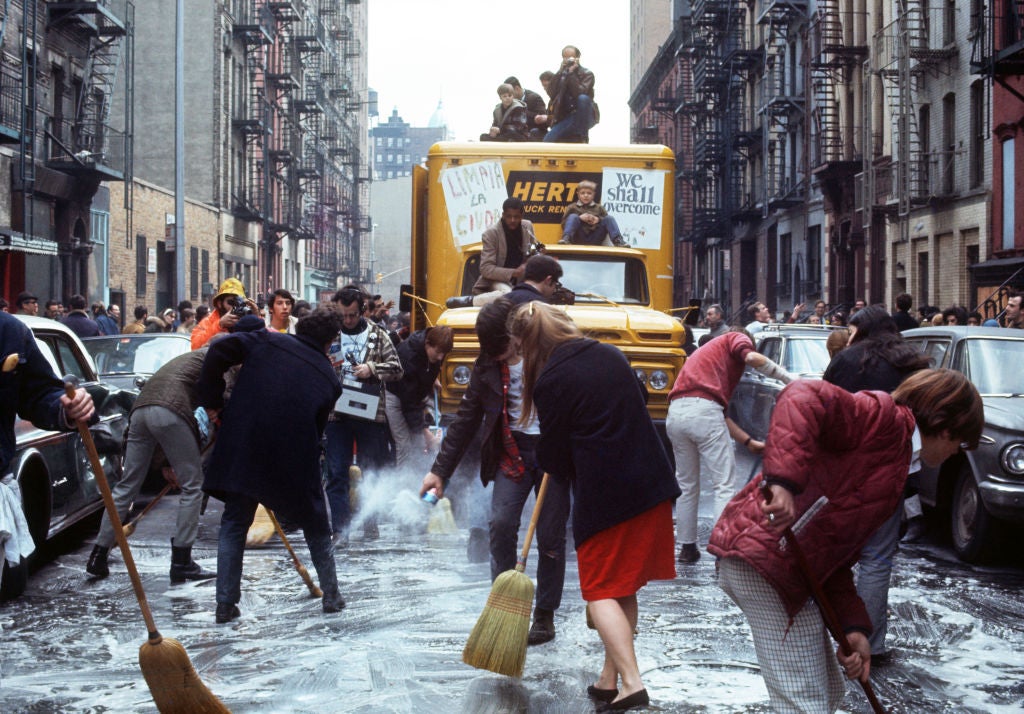What will you be doing on Earth Day on Saturday 22 April? Anything or nothing? Perhaps you plan to tweet about your decision to plant a tree or to stop using plastic straws? Or perhaps you will sign and share a petition on social media? Maybe you are confused about the difference between Earth Hour and Earth Day, and plan to sit this one out.
Inspired by US Senator Gaylord Nelson, the first Earth Day was launched in 1970 in the momentum of the anti-war protests against US involvement in Vietnam. According to the campaign’s website, it inspired 20 million Americans – at the time, 10% of the US population – to take to the streets.
Republicans and Democrats united to demonstrate against the environmental and human health impacts of 150 years of industrial development. The result was the US Environmental Protection Agency, followed by a raft of legislation including the National Environmental Education Act, the Occupational Safety and Health Act and the Clean Air Act.
In 1990, Earth Day went global. Today, apparently more than a billion people worldwide mark the day with some kind of action – the campaign website describes civil society mobilisation as “reaching a fever pitch across the globe”. (In case you are wondering, Earth Hour happens at the end of March and was created by the World Wildlife Fund and others in 2007).
The hype sounds good, but I don’t believe that either Earth Day, Earth Hour or events more generally are leading to “fever pitch” climate protests across the globe, and they are certainly not leading to fever pitch actions by politicians or the private sector.
Yes, Greta Thunberg and her Fridays for Future clearly had an impact and got policymakers and business leaders to think and, at least, claim they planned to ramp up climate action.

US Tariffs are shifting - will you react or anticipate?
Don’t let policy changes catch you off guard. Stay proactive with real-time data and expert analysis.
By GlobalDataHowever, Covid-19 largely killed all that and even before the pandemic it was becoming increasingly nauseating the way politicians and business leaders (usually middle-aged men) began every conference intervention by sharing their apparently humbling experience of going on a climate march with their child (usually their teenage daughter) and explained how “the kids are going to save us”.
Whether their political party or company was going to change course because their offspring had woken up to the environmental emergency was generally less clear.
Yes, scientists, mothers and grandparents are gluing themselves to buildings and being arrested and imprisoned.
Yes, many of us have been on climate marches in recent months, painted slogans on bits of cardboard with our kids and shouted for environmental justice for all – but in the western world, at least, we are not at fever pitch.
France, with its sustained protests over Emmanuel Macron’s insistence on raising the retirement age, has given us a good idea about what fever pitch civil society mobilisation could look like.
Despite the outrage, the French president has done what world leaders did when between six and ten million people worldwide marched against invading Iraq in 2003, and ignored the masses.
These recent examples of politicians ignoring protests doesn’t mean people should give up; on the contrary, everybody everywhere should be demanding urgent and immediate action to stop the climate and biodiversity crises. As in 1970, voices on the left and right of the political spectrum must come together to show that on this issue there is only one way forward and make it clear that politicians and private sector institutions either introduce real solutions or step aside.
If you plan to mark Earth Day this year, instead of perfecting a fluffy social media post, make a real commitment for your town, city, country or company to reduce emissions, save energy, protect and restore nature, and bring its footprint in line with the planetary boundaries scientists believe are acceptable to allow our own and future generations to survive and thrive.
“Our goal is an environment of decency, quality, and mutual respect for all other human creatures and all other living creatures,” said Senator Nelson. “An environment without ugliness, without ghettoes, without discrimination, without hunger, poverty or war. Our goal is a decent environment in the deepest and broadest sense.”
Pledging to recycle a bit more or plant a tree would seem a little churlish in the face of such ambition.





